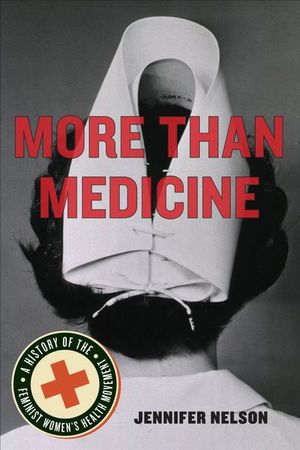More Than Medicine
Published by NYU Press
In 1948, the Constitution of the World Health Organization declared, “Health is a state of complete physical, mental and social well-being and not merely the absence of disease or infirmity.” Yet this idea was not predominant in the United States immediately after World War II, especially when it came to women’s reproductive health. Both legal and medical institutions—and the male legislators and physicians who populated those institutions—reinforced women’s second class social status and restricted their ability to make their own choices about reproductive health care.
In More Than Medicine, Jennifer Nelson reveals how feminists of the ‘60s and ‘70s applied the lessons of the new left and civil rights movements to generate a women’s health movement. The new movement shifted from the struggle to revolutionize health care to the focus of ending sex discrimination and gender stereotypes perpetuated in mainstream medical contexts. Moving from the campaign for legal abortion to the creation of community clinics and feminist health centers, Nelson illustrates how these activists revolutionized health care by associating it with the changing social landscape in which women had power to control their own life choices.
More Than Medicine poignantly reveals how social justice activists in the United States gradually transformed the meaning of health care, pairing traditional notions of medicine with less conventional ideas of “healthy” social and political environments.
BUY NOW FROM
COMMUNITY REVIEWS
